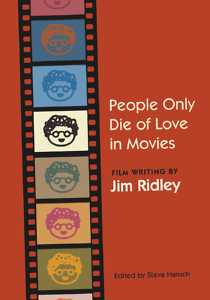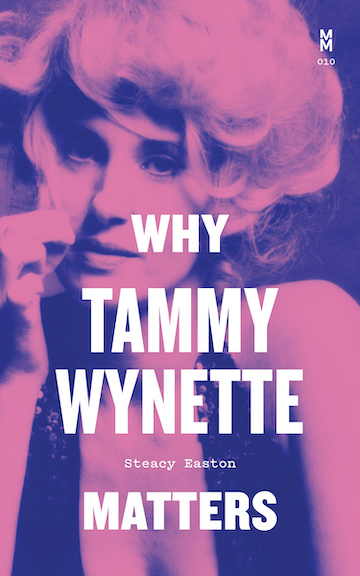A Cinephile’s Brilliant Friend
In People Only Die of Love in Movies, editor Steve Haruch collects some of the best film writing by the late Jim Ridley
“Beloved” is not a word usually associated with critics, but Jim Ridley, who spent twenty years as a film critic at the alt-weekly Nashville Scene and another seven as its editor, was absolutely beloved. When he died in 2016 after collapsing in his Scene office, the wave of sorrow rippled far beyond his personal circle. Many people who knew him only through his writing felt as if they’d lost a brilliant friend. A new collection of his work, People Only Die of Love in Movies, confirms that, in a very real sense, they had. Ridley’s voice was dazzling, honest, joyful, and a consistent force for good in the cultural life of the city he loved.

Editor Steve Haruch, a writer and filmmaker who worked with Ridley at the Scene, has done an impressive job of curating the collection and providing some personal context for Ridley’s work. He sorted through hundreds of reviews and features in the paper’s archives to gather the ninety-four pieces included here, which are grouped by format, film genre, or theme, rather than chronological order. This structure is an attempt, Haruch writes, “to give a sense of Jim’s loves and his sensibilities as a critic, and to heighten connections both between films and between reviews.” Some unlikely movies wind up rubbing shoulders this way. For example, Thelma & Louise, Batman Begins, and Dragon: The Bruce Lee Story buddy up in a group devoted to “Heroes and Anti-Heroes,” while Toy Story 2 and Boyz N the Hood share a section on “Innocence and Experience.”

This approach mirrors one of the chief delights of Ridley’s writing: his genius for tying unexpected things together. His reviews are filled with surprising and effective analogies, as well as obscure kinships. For instance, he illuminates his review of David Cronenberg’s 2005 neo-noir, A History of Violence, by finding a moral parallel in the debate over whether the U.S. should go to war with Iraq. He notes offhand (but no doubt took some delight in sharing) the fact that the producer of the Orson Welles classic Touch of Evil went on to produce “passion-pit fodder like Sex Kittens Go to College.” What might seem like showboating or a rhetorical stretch from a less talented writer always seems to work for Jim Ridley. The connections read as fun and effortless, perhaps because, for him, they were just that.
These pieces also display Ridley’s great knack for the meaningful quip, the witty line that does some critical work. Emir Kusturica’s 1995 film Underground is “the first movie about the collapse of the former Yugoslavia that you could recommend wholeheartedly to a Three Stooges fan.” The Star Wars series “ends not with a bang but the whimper of countless casualties, as a noble knight turned galactic tyrant learns to stop worrying and build the Death Star.” But behind the wit and the flashbang prose, there’s a tender sensibility evident throughout this whole collection, and when it comes to the fore, as it does in this passage about a dying mother in Aleksandr Sokurov’s Mother and Son, the reviews rise to the level of art:
You’re always aware of the slow passage of each moment and an accompanying pang of regret as one more moment passes—an apt way to evoke watching a loved one wither. Like the mother, the movie makes demands upon your patience; like the mother, the movie comes across as a living thing perched between death and transcendence. When the end comes for both, there is a howl of anguish for which nothing can prepare you; then darkness, silence.
 Ridley’s film criticism was of a piece with his general desire to nurture the cultural life of Nashville. He championed books and music as well as movies, and in fact there’s a great piece about a Bruce Springsteen concert nestled in among all the film writing here. He was passionate enough to take the city to task sometimes, as when he used his platform at the Scene in 1999 to decry the “stupefying complacency” of Nashville’s movie lovers in letting the Belcourt, Nashville’s only art-house movie theater, reach the brink of death. Thanks in no small part to his advocacy, the Belcourt ultimately survived and thrived, and the theater’s newly renovated lobby was named for him after his death. There’s a seat with his name, too.
Ridley’s film criticism was of a piece with his general desire to nurture the cultural life of Nashville. He championed books and music as well as movies, and in fact there’s a great piece about a Bruce Springsteen concert nestled in among all the film writing here. He was passionate enough to take the city to task sometimes, as when he used his platform at the Scene in 1999 to decry the “stupefying complacency” of Nashville’s movie lovers in letting the Belcourt, Nashville’s only art-house movie theater, reach the brink of death. Thanks in no small part to his advocacy, the Belcourt ultimately survived and thrived, and the theater’s newly renovated lobby was named for him after his death. There’s a seat with his name, too.
The tributes are fitting, but they’re also an enduring, poignant reminder of the magnitude of Jim Ridley’s loss. He was only fifty when he died, and he should have had many more years to grace the planet with his lively mind and spirit. But he did leave a wonderful legacy, a body of brilliant, engaging, singular work that is all the more remarkable for having been turned out on deadline, week after week. People Only Die of Love in Movies was written by a man lucky enough to find the work he was born to do, and gifted enough to do it superbly.
[To read an excerpt from People Only Die of Love in Movies, click here.]

Maria Browning is a fifth-generation Tennessean who grew up in Erin and Nashville. Her work has appeared in Guernica, Literary Hub, and Still. She is the managing editor of Chapter 16. .


